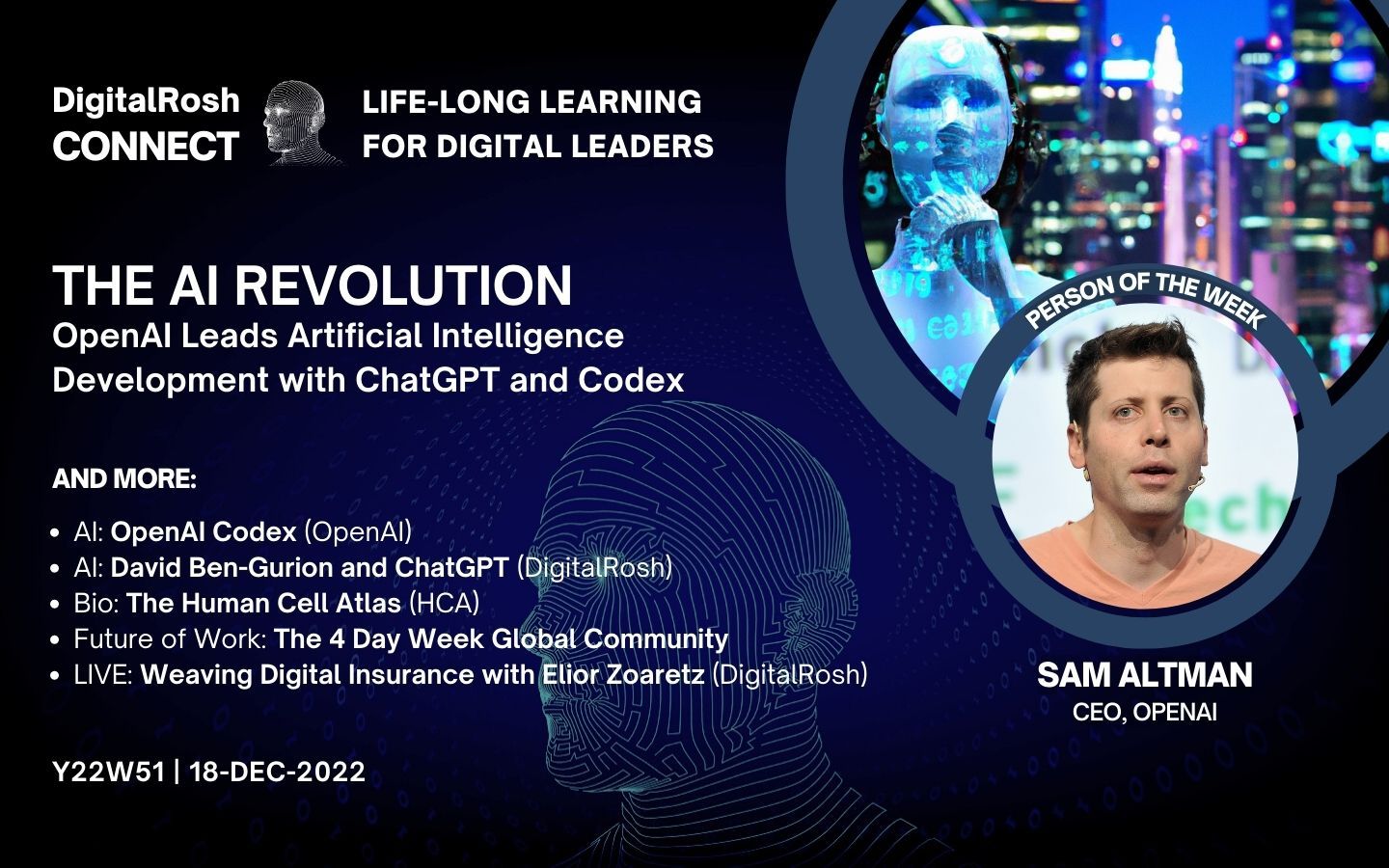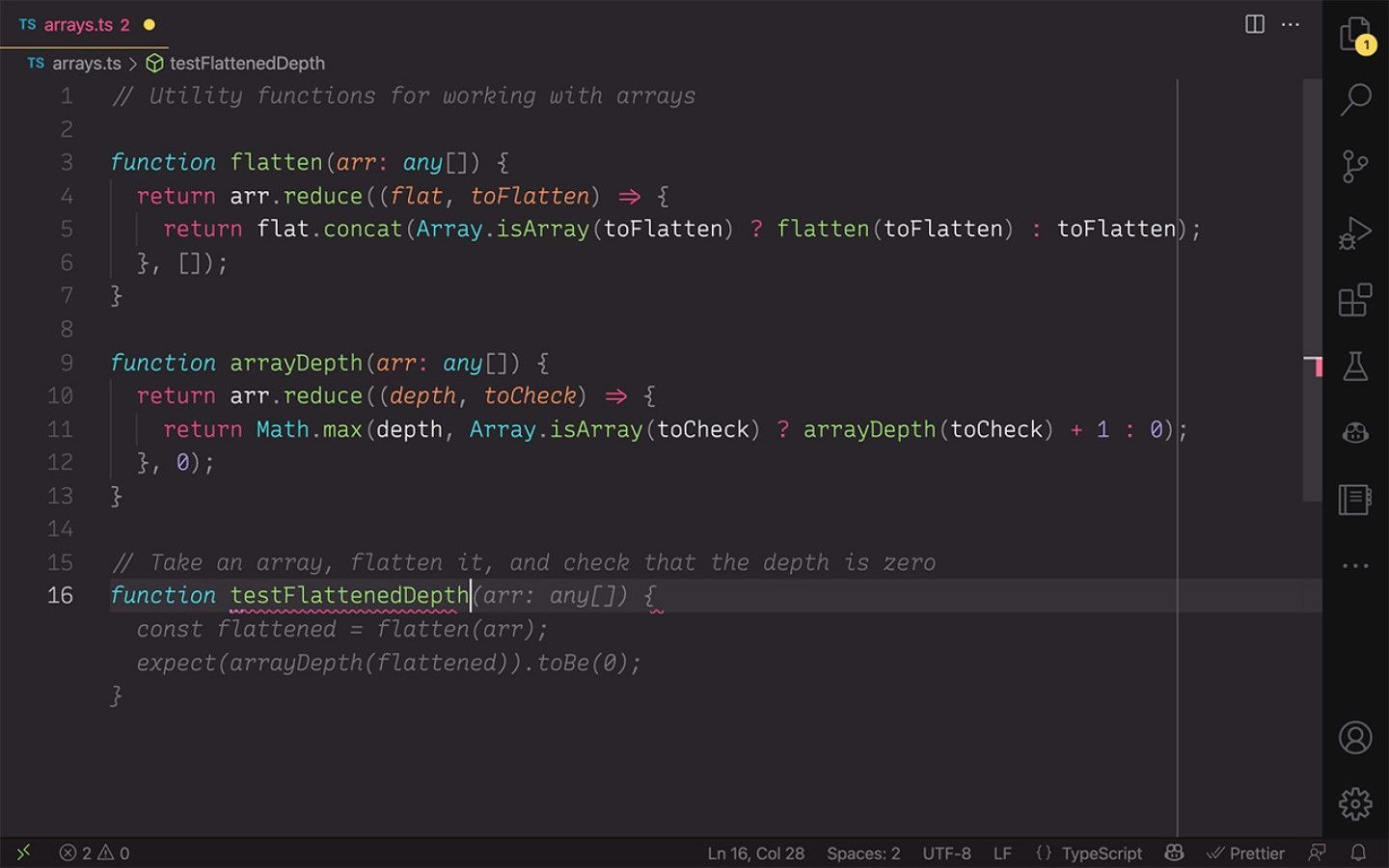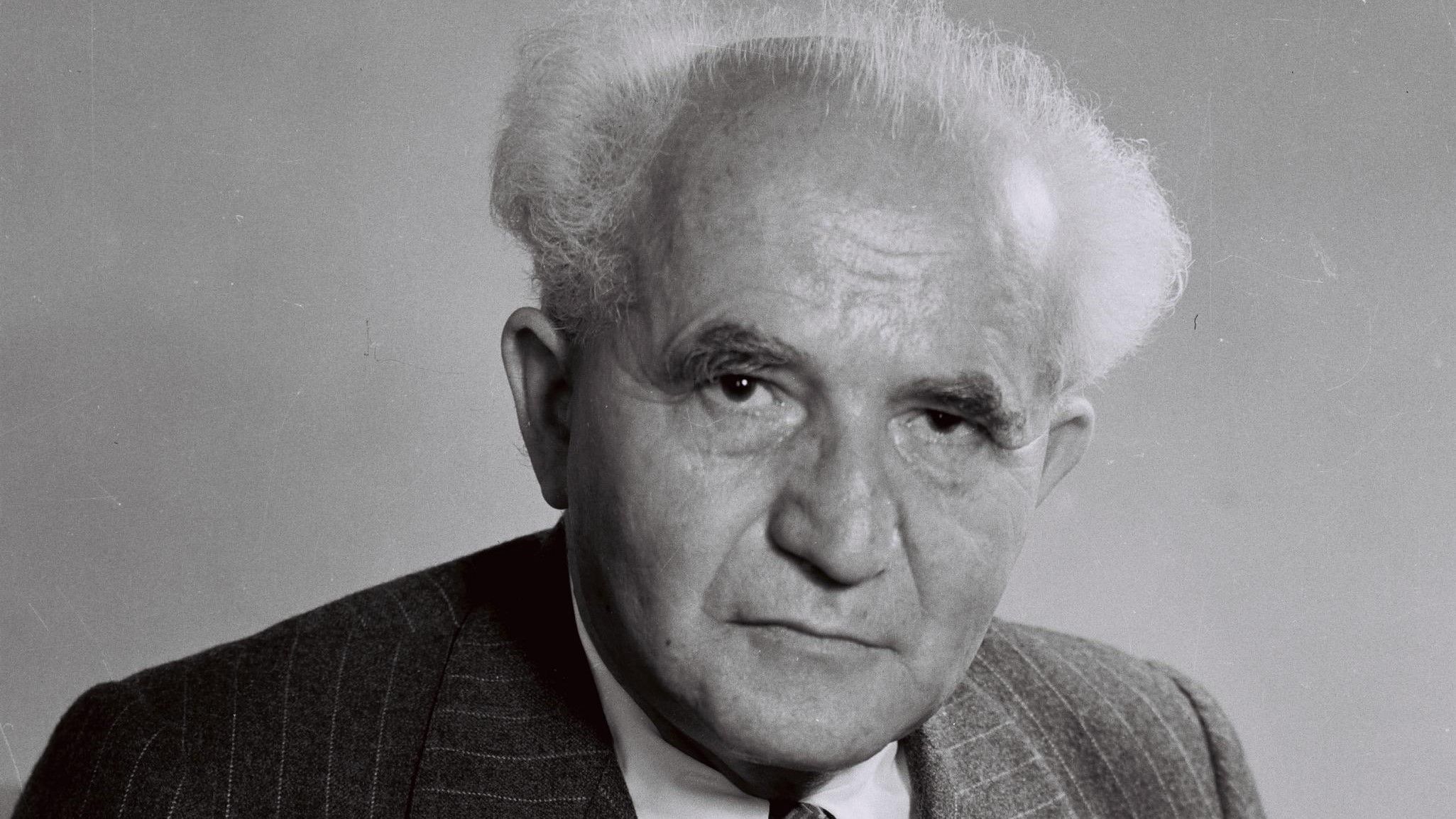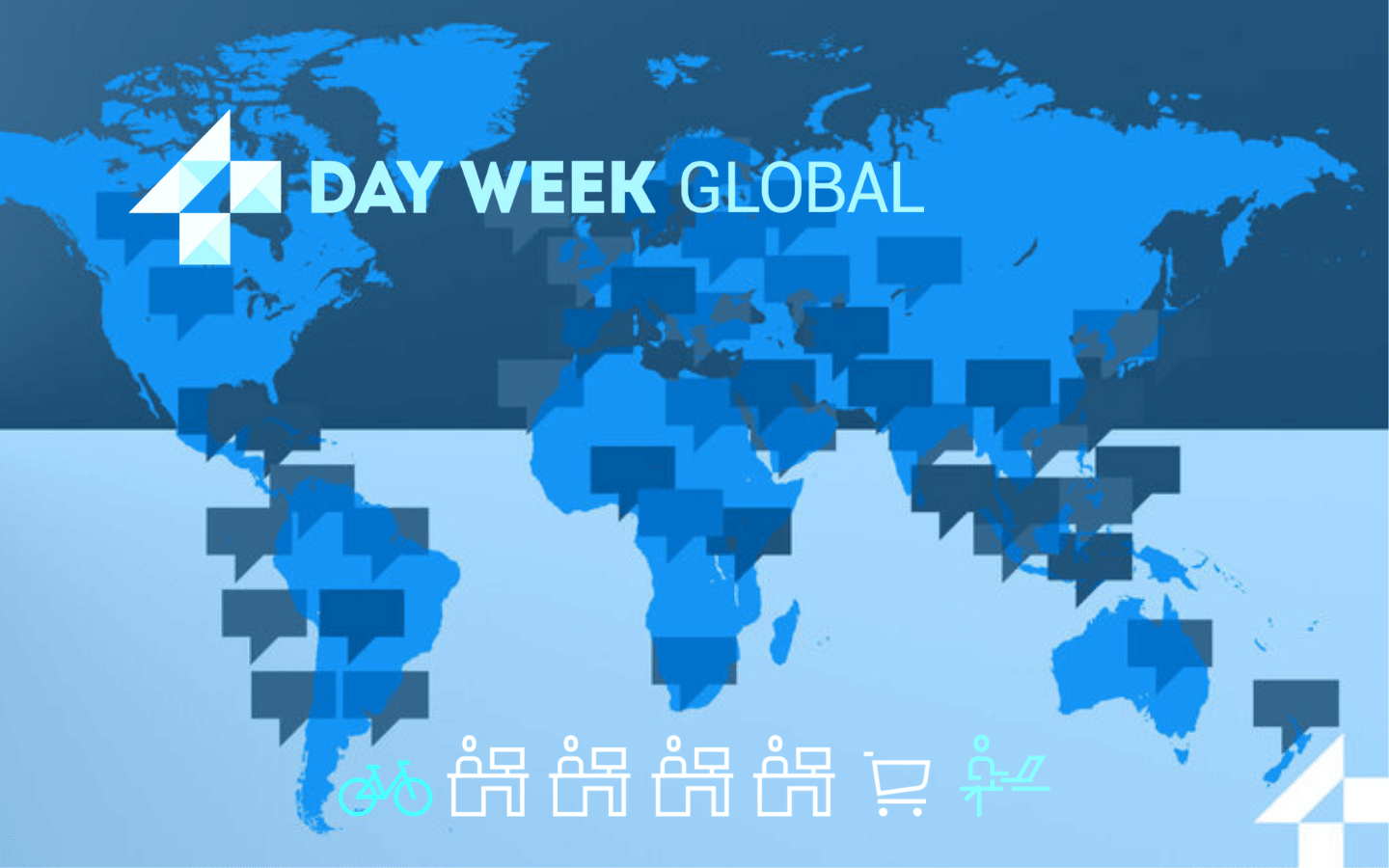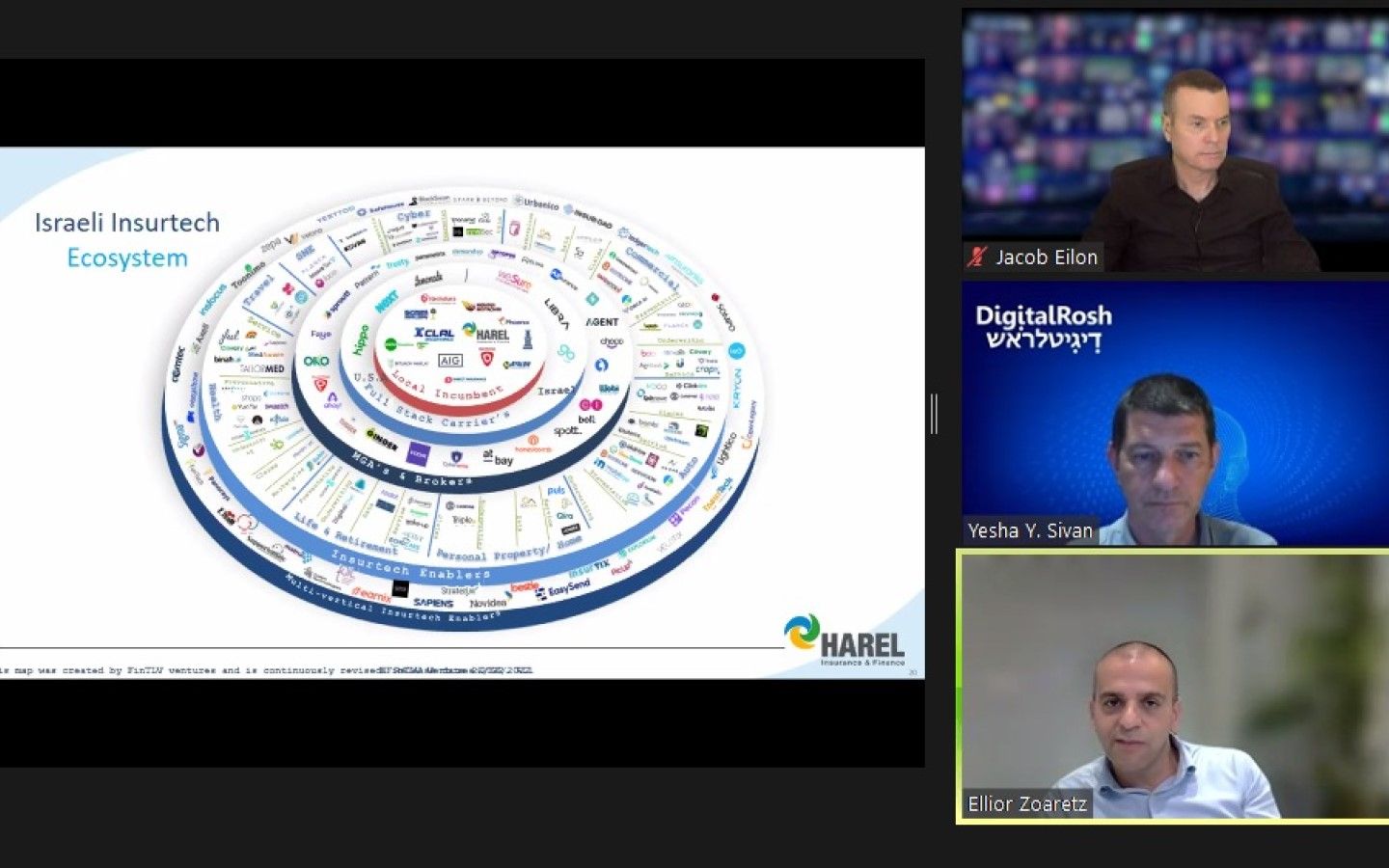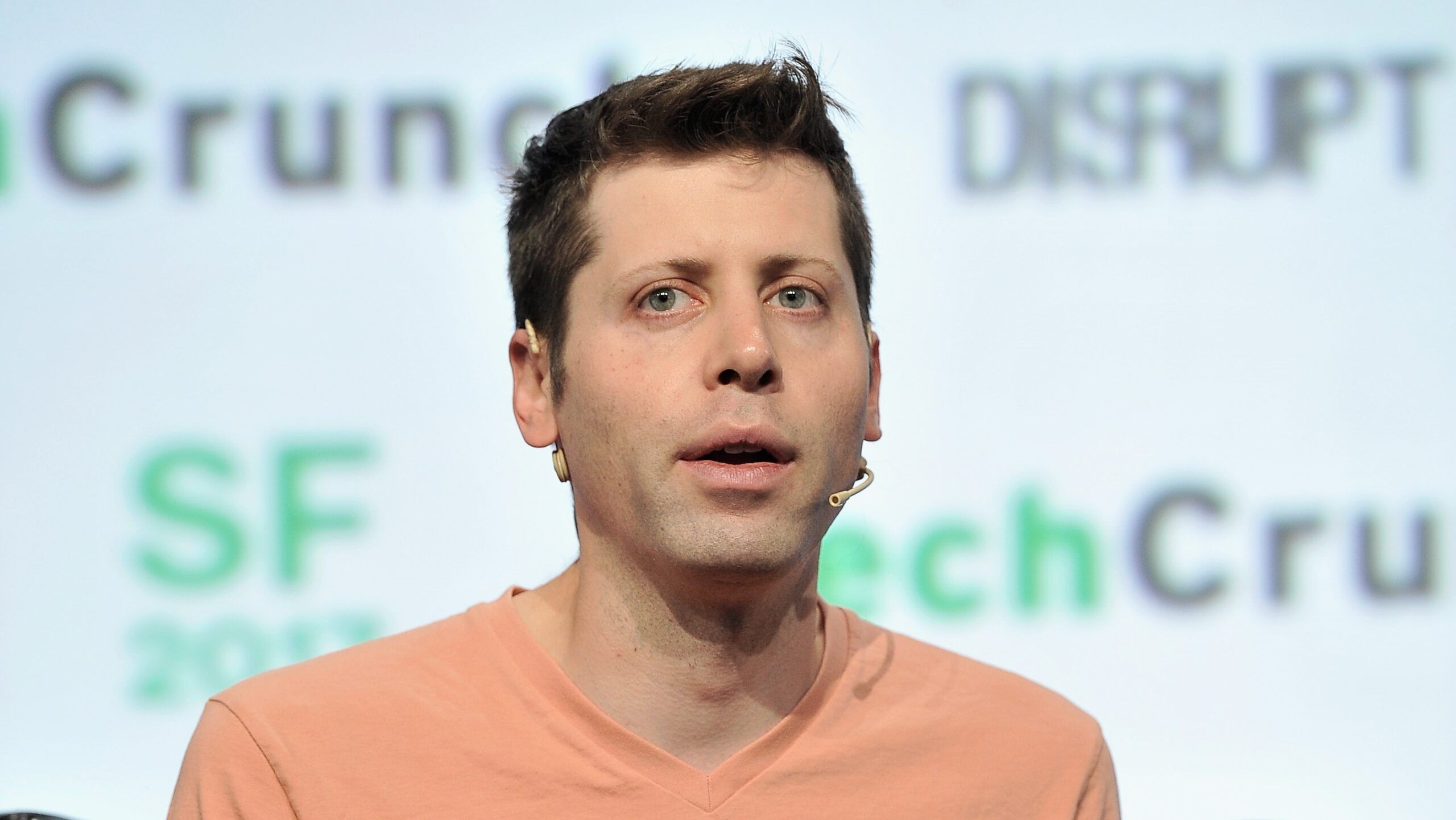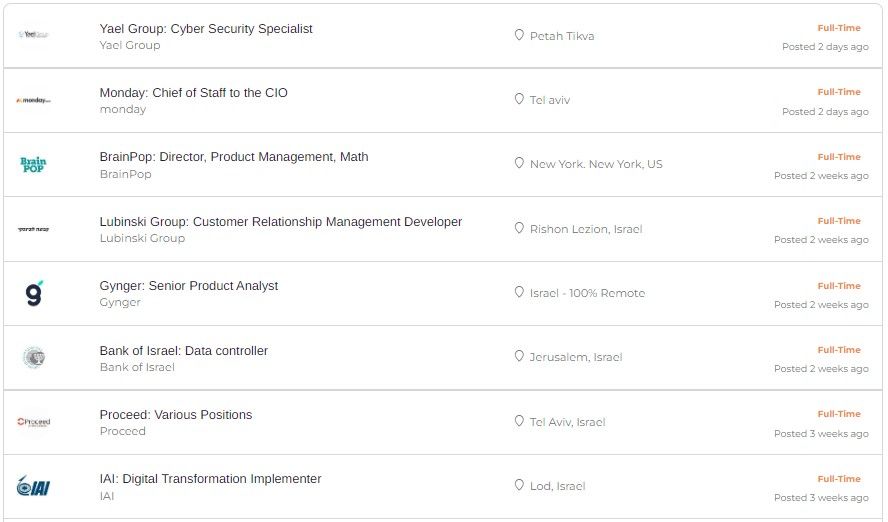In this issue of DigitalRosh CONNECT, we will be discussing the latest developments in the field of generative AI, including the release of the OpenAI Codex and the exciting new ChatGPT technology.
ChatGPT is a revolutionary new technology that allows users to interact with AI in a more natural and intuitive way, enabling them to engage in conversations with AI systems as if they were talking to another person.
Interestingly enough, ChatGPT also wrote the above introductory text. Further examples of its use may be found below.
Wishing you an enlightening learning,
Prof. Yesha Sivan, Founder, and CEO
& DigitalRosh team
(1) DigitalRosh > Corpus > Technologies > AI
Powering Next Generation Applications with OpenAI Codex (OpenAI)
OpenAI Codex, a natural language-to-code system based on GPT-3, helps turn simple English instructions into over a dozen popular coding languages.
Codex is now powering 70 different applications across a variety of use cases through the OpenAI API, and is the principal building block of GitHub Copilot.
This article describes some of the platforms and applications that use Codex, like GitHub Copilot, Pygma, Replit, Warp, and Machinet. The applications built on top of Codex utilize the system’s capabilities in a variety of categories including creativity, learning, productivity and problem solving.
(2) DigitalRosh > Corpus > Technologies > AI
Leading LLL – On David Ben-Gurion and ChatGPT (DigitalRosh)
As the first prime minister of Israel, David Ben Gurion was instrumental in establishing the state on May 14, 1948. While many celebrated this historic moment, Ben Gurion was said to be somber and contemplative.
Fast forward to today, and the advent of AI technology such as ChatGPT has many people feeling excited and optimistic. However, it is important to recognize that this technology also has the potential to create a divide between those who have access to it and those who don’t. If we continue on our current path, we may see:
- the emergence of new Luddites who reject the use of AI,
- as well as pockets of society where only those with a deep understanding of AI will thrive.
- This could lead to chaos and confusion, as we have seen with the rapid advancement of technology in the past. “Balagan in Hebrew”
But it is not too late to change course. By embracing the responsibility that comes with the power of AI, we can ensure that this technology leads to positive outcomes for all of society. Let’s work towards a future where AI enhances our lives rather than causing further division.
With great power comes great responsibility.
(3) DigitalRosh > Corpus > Technologies > Bio
The Human Cell Atlas (HCA)
The Human Cell Atlas is an international collaborative consortium aiming to create comprehensive reference maps of all human cells.
For as long as scientists have been able to observe cells under the microscope, they have been interested in understanding how cells work.
More recently, it has become possible to classify cells by their expression profiles, that is, the levels at which they express RNA or protein from each gene. However, until the early 2010s, this characterization happened at the level of large chunks of tissue, made of millions or billions of cells, rather than individual cells.
Thanks to new single cell genomics and spatial imaging technologies developed since the late 2000s and early 2010s, it is now possible to measure gene expression profiles in individual cells.
This large scale data can be used with machine learning algorithms to decipher how the cells differ from and interact with their neighbors, and how they form and function in the tissue.
(4) DigitalRosh > Corpus > Cross-Industry > Future of Work
4 Day Week Global
4 Day Week Global is a not-for-profit community established by Andrew Barnes and Charlotte Lockhart to provide a platform for like-minded people who are interested in supporting the idea of the 4 day week as a part of the future of work.
This community is launching projects in interested organizations globally. It encourages business, employees, researchers, and government to all play their part in creating a new way of working which will improve business productivity, worker health outcomes, stronger families and communities, challenge the gender equality issue, and work towards a more sustainable work environment.
(5) DigitalRosh > Community > DigitalRosh LIVE – Weaving Digital (22Q4)
LIVE: Weaving Digital Insurance With Elior Zoaretz (DigitalRosh)
On December 13, 2022, DigitalRosh held the fourth webinar in its DigitalRosh LIVE: Weaving Digital series, hosting Elior Zoaretz, Deputy CEO and Head of Business Development and Innovation at Harel – Israel’s largest insurance group.
DigitalRosh Plus and Pro members can access a complete recording of the LIVE event, the webinar by Elior Zoaretz and the subsequent discussion.
(6) DigitalRosh > Corpus > Technologies > AI
Person of the Week: Sam Altman, CEO, Open AI
Sam Altman is an American entrepreneur and investor. He is the former president of Y Combinator and a partner at OpenAI.
Altman is known for his work in the technology industry, including as the co-founder of OpenAI and as the former CEO of Reddit. He is a well-known figure in the technology industry and is widely regarded as a leading expert in the fields of artificial intelligence and entrepreneurship.
Altman’s first major venture, Loopt, a location-based social networking mobile application lasted for seven years before being shut down. However, Loopt was only the first step of what has turned out to be a most fascinating career as a venture investor. The full story of Altman’s career is best told by Altman himself – the DigitalRosh corpus features an episode of the “How I Built This Lab” podcast with Guy Raz, hosting Altman in an hour-long talk about his journey from Stanford dropout and teenage entrepreneur to president of Y Combinator and co-founder of OpenAI.
In 2011, while still at Loopt, Altman joined the Y Combinator accelerator, and became its president in 2014. Y Combinator is famous for investing in numerous startups that became unicorns, such as AirBnB, Dropbox, and Stripe, among others. In 2015, Altman was named the top investor under 30 by Forbes. He left Y Combinator in 2020.
OpenAI, Altman’s most recent project, is a combined non-profit and for-profit research company advancing digital intelligence. OpenAI is also famous for becoming a unicorn since day one of its existence, having raised $1 billion funding from a group of investors that included, among others, Elon Musk, Peter Thiel, and Amazon Web Services.
OpenAI is responsible for some of the most interesting recent developments in the field of generative AI, such as DALL-E 2, allowing the creation of images from text strings; and ChatGPT, enabling free text communication between man and machine. Another fascinating project of OpenAI is the OpenAI codex, translating natural text strings to programming code. We have dedicated an item to the codex in this issue of CONNECT (see above).
In a recent interview with Reid Hoffman of Greylock, accessible on DigitalRosh, Altman discusses AI for the next era, and what is going to change in our lives thanks to artificial intelligence.
To view these and other job postings, click on the image or visit – DigitalRosh > Corpus > Career > Job Board

